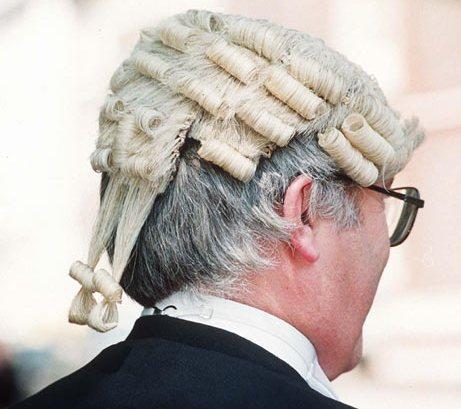Denham's appointment a chance for change

The incoming chief justice Susan Denham has skills and experience to usher in key changes, writes Vincent Browne, changes that are sorely needed in the Irish system of 'justice'
The Parliament of our people, the institution that supposedly holds the government of the day to account, wasn't even told that the State (ie, the Irish public) has guaranteed €50 billion in loans the Central Bank has given to the commercial banks over the last few years.
That is on top of the €80 billion-plus cost of the bank bailout. The Dáil didn't approve that of course – how could it since it didn't know of it? And of course it didn't or couldn't even inquire of the minister for finance, who gave this guarantee, why this was given and why so open-ended.
The Government has just announced an appointment to one of the most powerful positions in the State. Again, very likely the Dáil wasn't told about it beforehand and, certainly, the Dáil will have no say on the appointment because it has already been made. It's the old politics masquerading as the new politics.
The position, announced yesterday evening [Tuesday 19th], is that of chief justice and while the chief justice theoretically has no more power than the other judges of the Supreme Court, Supreme Court judges have enormous power and the chief justice has slightly more power than his/her colleagues.
This is because of the administrative function the chief justice performs, including a certain freedom to choose which judges will sit on which cases. (This power was used, in one instance at least, with considerable consequence on an extradition matter, 30 or so years ago.)
The reason the position is being filled anew is because the outgoing Chief Justice, John Murray, has to retire from the position because he has served the accompanying seven-year term. He has been one of the best chief justices we have had.
Susan Denham, who has been on the court since 1992 and will be taking over from Murray, was the obvious and outstanding candidate. She was chairwoman of the working group on a courts commission, which led to the establishment of the Courts Service in 1999.
She was also chairwoman of a working group on a court of appeal, which recommended the establishment of a court of appeal in 2009. And otherwise much involved in the reform of the courts system, as Murray has been. Her appointment now as chief justice will give impetus to the further changes to the judicial system that are urgently needed, including the establishment of a court of appeal to relieve the three-year backlog of cases getting to the Supreme Court.
Denham also has the personal skills to dig the judges out of the hole they have dug for themselves on the judicial salaries issue. That will require some digging for it has involved the clear jurisprudence of the Supreme Court itself on that very issue in finding in 1959 that judges could indeed be subjected to the same taxation arrangements as everyone else, even when this clearly resulted in reduction in net salary.
As is the way of these things, the appointment is being made with no accountability and no transparency, even though it is to a position of such enormous influence.
In truth, the people appointed to the Supreme Court over the last several decades invariably have been of high calibre and the output of the eight judges on that court is phenomenal, if almost always far too loquacious and very often impenetrable. Other judicial appointments have been less distinguished, especially some appointments to the District Court, to which friends and relatives of ministers have obtained preferment, while being otherwise unsuitable.
We might now have some real changes to the legal system, not because of any sense of urgency on the part of our domestic masters but because of the insistence of our real masters in the EU and IMF. Legal costs will be part of this and, very probably, the amalgamation of solicitors and barristers.
The basis for legal costs must surely be hours worked, with arrangements to ensure that the same hours are not worked on different cases!
The schedule for court sittings might be changed too. What is the reason that courts sit only four hours a day and that very often judges arrive late and end sittings early – why not six hours a day, a full six hours? The Gilbertian paraphernalia also probably will go – the wigs, gowns, bibs and the rest.
The Gilbertian behaviour of judges who demand to be called "my lord", who refuse to "recognise" barristers not wearing horse-hair, who won't deal with barristers in District Courts not accompanied by solicitors – all that carry-on must surely stop, along with unmannerly judicial behaviour.
Our EU-IMF masters might not be much bothered with the customs, manners and language of our judicial system but the rest of us should be.
Those customs, manners and language are redolent of a class-based culture that, by definition, is exclusionary of the "ordinary" person.
The courts are for anybody but the "ordinary" person and "ordinary" persons should not tolerate exclusion any longer.
This column also appears in today's edition of The Irish Times
